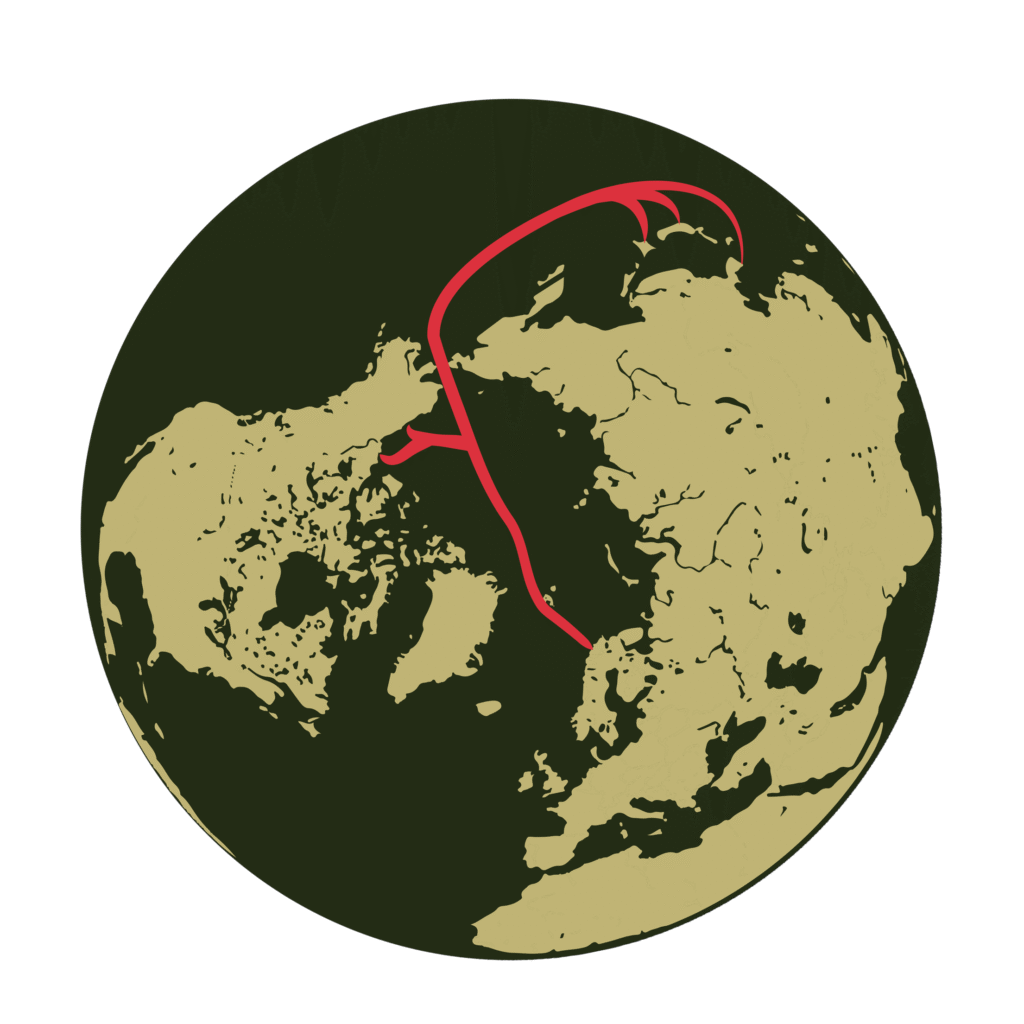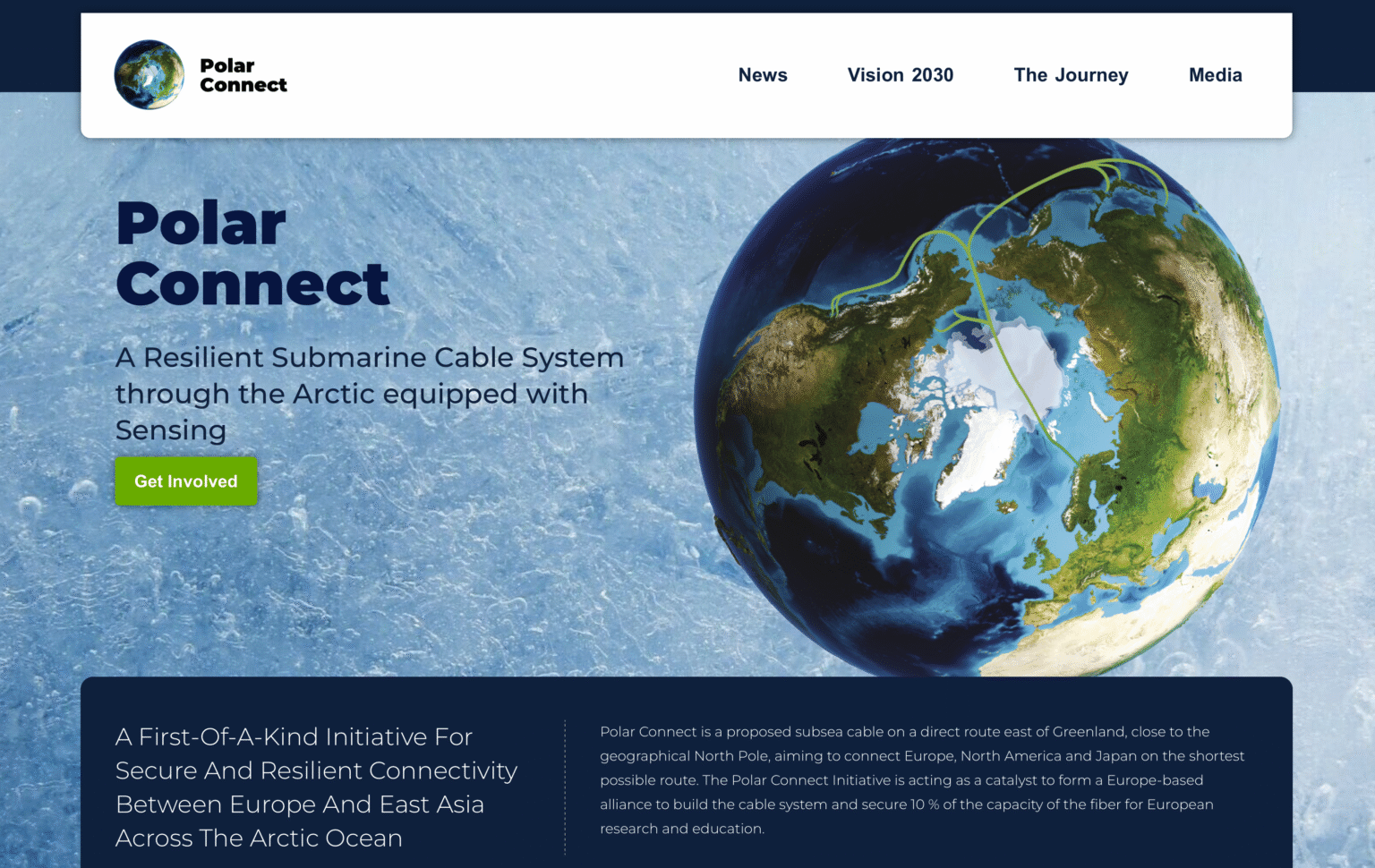Polar Connect Step 1 (PC1)
supports the implementation of the Polar Connect initiative. It will provide design and exploration studies on relevant parts of the seabed in the Arctic Ocean to determine the optimal route for Polar Connect, in preparation for the future marine survey phase. The project will also prepare the tender document for the marine survey, which is expected to begin only after 2027, following the construction of a new icebreaker.
Building on the results of the CEF-Digital action 21-EU-DIG-Northern Gateways and the ongoing activities of the CEF-Digital action 22-EU-DIG-NPF, the planned studies aim to select the optimal route and strive to align the layout of Polar Connect with other initiatives, to support resilience between the projects.

Polar Connect Step 1 Project is co-funded by the European Union. Views and opinions expressed are however those of the authors only and do not necessarily reflect those of the European Union or HaDEA. Neither the European Union nor the granting authority can be held responsible for them.
Beneficiaries and their roles:
Swedish Research Council (VR/Sunet) – Coordinator
As the project coordinator, the Swedish Research Council (VR/Sunet) oversees overall project management, reporting, and coordination among partners. It leads Work Package 1 (Project Management and Coordination), ensuring that the consortium operates smoothly, timelines are met, and deliverables are submitted according to plan. VR/Sunet also contributes to outreach activities and participates in technical planning and seabed mapping, supporting both governance and implementation efforts across the project.
NORDUnet A/S
NORDUnet A/S contributes its experience in digital infrastructure to support both stakeholder engagement and technical planning within the PC1 project. It leads Work Package 2 (Engagement and Outreach), coordinating engagement with commercial operators, public authorities, research communities, and international stakeholders. In Work Package 4 (Technical Planning and Design), NORDUnet is responsible for tasks such as developing the cable route plan, assessing power resilience, identifying potential landing sites, and drafting security guidelines. These efforts contribute to the consortium’s shared goal of advancing resilient cross-border digital connectivity.
Swedish Polar Research Secretariat (SPRS)
The Swedish Polar Research Secretariat (SPRS) brings Arctic field expertise to the consortium and leads Work Package 3 (Mapping of the Arctic Route). SPRS is responsible for coordinating and executing a series of survey missions in the Arctic Ocean using the icebreaker Oden, with the aim of collecting critical seabed and environmental data for future route planning. SPRS also contributes to Work Package 4 by assessing environmental impacts over the cable’s potential 25-year lifecycle. These inputs are essential for determining the technical and environmental feasibility of the Polar Connect route.
DeiC/DTU (Technical University of Denmark)
DTU/DeiC leads Work Package 5 (Sensing Technologies), focusing on the development of a roadmap for integrating sensing technologies into the future submarine cable system. This includes evaluating options for environmental monitoring and cable integrity. DTU/DeiC also participates in stakeholder engagement and overall coordination efforts, contributing scientific and technical knowledge to the planning and outreach components of the project.
GlobalConnect AB
GlobalConnect AB leads Work Package 6 (Commercial Planning), which focuses on developing the business case for the future implementation of the Polar Connect system. This includes conducting market studies, assessing risks, and drafting a provisional business plan. In addition to its commercial planning role, GlobalConnect supports stakeholder engagement and contributes to the broader coordination efforts of the consortium.
Learn more:
Polar Connect Initiative is a Northern European initiative to obtain secure and resilient connectivity between Europe and East Asia, on the shortest possible route through the Central Arctic Ocean.
Polar Connect is a visionary global initiative to establish a high-capacity submarine cable linking Northern Europe and East Asia via the Arctic Ocean — the shortest route between the two continents. Designed to support 12 to 24 fibre pairs, the cable will offer ultra-high transmission capacity while avoiding geopolitically sensitive zones such as the Red Sea, which currently carries around 90% of Europe-Asia communications. The project contributes directly to the Vision 2030 agenda through a series of strategic sub-projects.
Explore the broader Polar Connect Initiative and how it supports secure, scalable, and future-ready digital infrastructure across the Arctic region.
info@polarconnect.net



